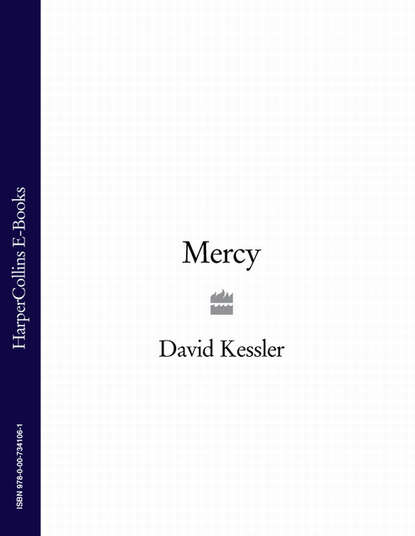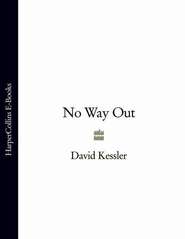По всем вопросам обращайтесь на: info@litportal.ru
(©) 2003-2024.
✖
Mercy
Автор
Год написания книги
2018
Настройки чтения
Размер шрифта
Высота строк
Поля
‘I know that you only came in on this case recently and I know that you have a duty to help your client.’
Again he nodded, trying to make it reassuring. Whatever she was about to say, he knew that it must be painful. It must have cost her a helluva lot to reach the decision to ask the governor to grant clemency to the man who had murdered her daughter.
‘Mr Sedaka, in Hebrew your name means both “charity” and “righteousness” and I hope those are ideals that you live up to.’
Like Esther Olsen, Alex was Jewish and, although he had long ceased to practice the religion of his childhood, he still remembered much of what he had learned about it in the first fourteen years of his life. He knew about the meaning of his name, or rather the Hebrew word ‘tsedaka,’ from which the family name Sedaka was derived.
‘I am dying, Mr Sedaka. I have cancer of the pancreas and the doctors have told me that I have at most a few months left to live. I was estranged from my daughter, for reasons too complicated to go into. One of my biggest regrets is that we never got the chance to make it up.’
‘Was this disagreement shortly before she died?’
Alex didn’t know why he had asked it. But he knew that it was more than just idle curiosity.
‘No, this was several years before she died. I always thought—I always hoped—that the passage of time would heal the wounds. But it was not to be. We were never reconciled.’
She took a deep breath, struggling to speak.
‘To outlive one’s own child is a terrible thing, Mr Sedaka. But if there is one thing worse than to outlive one’s child, it is to part from those we love on bad terms. And that is the pain that I will carry with me to my grave.’
Her eyes were welling up with tears now and Alex felt a lump in his own throat.
‘It is too late for me now to be reconciled with my daughter and I do not know if we will be at peace with each other in the next life, because I do not know if there is a next life. But there is one thing that I want to do in this life and that is to give her a proper burial…or…at least to know where she is buried.’
Now, at last, it was all falling into place.
Alex turned to Mrs Olsen.
‘So let me see if I’ve understood this correctly. You want me to get my client to reveal where he has dispo—where he has buried the body. And in return for this, you have asked for Burrow to get clemency and to serve a sentence of…what?’ He turned to the governor. ‘Life without parole?’
Dusenbury nodded. Obviously the governor wasn’t going to give Burrow a complete amnesty. Alex looked to Esther Olsen.
‘That is all I ask, Mr Sedaka. That is a mother’s dying wish.’
Alex lowered his eyes, overwhelmed by his own emotions. How, he asked himself, could my client have been so evil as to do what he did? How could he be so cruel as to put a mother through this?
But he quickly cut off the thought. It was not for him to judge his client. It was not even for him to believe that his client was guilty as long as Burrow maintained his innocence. Of course he had a duty to put the offer to his client. Maybe now at last Burrow would come clean. Alex had never really believed that Burrow was anything other than guilty. Of course as a lawyer, Alex had a professional duty to act on his client’s instructions and to argue that his client was innocent as long as that was what the client maintained. But there was no authority on earth that could issue a formal ruling that is binding on human nature, much less on human thought.
Alex had assumed that Burrow was guilty before he had even taken on the case, if only from the news coverage when the original trial took place and through the long and tortuous appeals process. By the time he was asked to take the case, he was pre-disposed toward the idea of Burrow’s guilt. But he was persuaded to take the case by the pleading of his ambitious legal intern and by the formal personal request of Burrow himself, for reasons which Alex had never quite understood.
Although Alex had speedread the trial transcript, working in an intense pressure-cooker atmosphere as the execution date loomed up ahead, nothing he had read had in any way changed his mind. Although the case was too complicated to be described as ‘open and shut’ it was certainly sufficiently overwhelming. There was no doubt in Alex’s mind: Clayton Burrow had murdered Dorothy Olsen.
The only question was, would he now come clean, now that he had a chance to save his miserable life in exchange for something so small? There was no chance of him being re-tried and acquitted, no chance of him being released from prison, so it would cost him nothing to tell the truth. And if there was a God, it might even save his soul.
Alex knew better than to approach the matter with anything so presumptuous as expectation. He would approach it, instead, with cautious hope.
But first he had to be sure that he had understood the terms of the deal correctly. He turned toward the governor.
‘So let me get this straight. The deal is, if Clayton Burrow reveals where the body is buried, he gets clemency and will serve a sentence of life without parole.’
‘That’s right,’ Dusenbury responded with a nod of his patrician head.
Alex considered for a moment asking to have the terms set in writing. But from the look on Esther Olsen’s face he knew that this would be needlessly cruel. And, from the governor’s firm handshake, it was also unnecessary.
10:03 PDT (#ulink_ee72cc92-1079-5d83-99a1-699529e5d3d8)
‘Life without parole,’ Alex had said. The man in the car couldn’t believe it.
There was no doubt. The offer was on the table.
The man’s mind was reeling. When the governor had invited Alex to come early for the meeting, he had wondered about what was going down. He had known that it was likely to be something unusual. But he hadn’t expected that.
He kept running over the conversation in his mind.
Nathaniel Anderson was not a G-man. Neither was he a cop, nor a journalist, nor a hired assassin. He had recently graduated from law school and was working as a legal intern while preparing for his bar exams. He had done a lot of Public Defender work in his final year of law school, helping indigent clients plea bargain down their sentences in the proverbial meat-grinder that was the criminal law system.
It had taken time to win their respect. They saw him as a stuck-up white boy, like most lawyers. But he had worked like a dog and won them over through his sheer tenacity and hard work. And because he worked for the Public Defender he had also built up a powerful list of contacts in the criminal community. It was a list that had come in very useful.
So the governor was offering Burrow clemency in return for revealing where the body was located. He wondered how the public would react to that—not that the governor or Alex would reveal it until it was a done deal.
Nathaniel looked round at the traffic on Golden Gate Avenue. Parked a few cars down the road was a limousine. He looked up. The sun was higher now: the day was wearing on. Just under fourteen hours till Burrow was due for the lethal injection—unless Alex could save him.
He looked back at the limousine and wondered if it was the vehicle that had brought Mrs Olsen here. Her proximity left him feeling uneasy. But that was all right. He knew that they would both be gone in a minute.
Keeping his eyes on the rearview mirror, he waited while the next couple of minutes went by. Finally there was activity from the entrance to the building and several people emerged at the same time: Mrs Olsen, the limo driver and Alex Sedaka. Alex watched while the limo driver led Mrs Olsen back to the car, opened the door to let her in, closed it behind her and went to the driver’s seat. He continued watching while the limo drove off past him, heading east toward Larkin Street.
As Alex turned away, Nathaniel strained to see the look on his face in the rearview mirror.
As Alex approached, Nathaniel pulled out the earpiece and put it away in the glove compartment. He reached forward for the ignition key as Alex opened the front passenger door and got in.
‘I assume you got all that, Nat?’ said Alex, pointing to Nat’s cell phone.
‘Every word. So what’s it to be? The office?’
‘No, I think we’ll pay a little visit to San Quentin first.’
10:05 PDT (#ulink_b28dacfa-4647-59fe-86d9-0c18ebdd2460)
A shrine.
That was the only way you could describe it: a shrine that radiated outward from the mantelpiece above the mock fireplace.
The picture sat there in the center of the mantelpiece—a teenage girl smiling at the camera, or at least trying to smile. With Dorothy you could never tell if the smile was real, because she had learned from an early age to wear her face as a mask. Was it a smile of joy? Or the painted greasepaint smile of the clown who had to go on and perform even when she was grieving on the inside?
The picture was flanked by a pair of candles and the surrounding area of the wall was adorned by her tennis certificates and poems. Round the room trophies were liberally distributed across several coffee tables and glass-fronted cabinets.
Apart from the memorabilia, the only furniture in the room was an armchair and a small TV set.
The young man stood before the picture, staring into Dorothy’s eyes, trying to decipher the enigma. Were they happy? Had she ever been happy? Had she ever had the chance to be?






